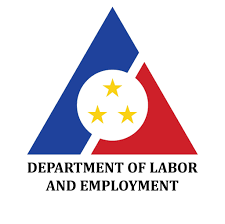Labor unions have long been a cornerstone of the workforce, providing a collective voice for employees and negotiating on their behalf for better wages, working conditions, and benefits. While their prominence may have waned in some regions over the decades, labor unions still play a vital role in advocating for workers’ rights and addressing challenges in modern employment.
What Are Labor Unions?
A labor union is an organized group of workers who come together to protect and advance their collective interests. These organizations negotiate with employers over issues such as pay, job security, workplace safety, and benefits. The ultimate goal is to balance power between workers and employers, ensuring fair treatment and preventing exploitation.
The Historical Importance of Labor Unions
Historically, labor unions have been instrumental in securing fundamental rights for workers, such as the 8-hour workday, fair wages, paid leave, and workplace safety regulations. Their activism in the 19th and early 20th centuries helped lay the foundation for modern labor laws, especially in industries like manufacturing, mining, and transportation.
Labor Unions Today
In today’s rapidly changing work environment, labor unions continue to evolve. While traditional manufacturing jobs still rely on union representation, new sectors such as tech, education, healthcare, and gig economy workers are increasingly turning to unions for support. Modern-day labor unions focus on issues like:
- Workplace Flexibility: Advocating for better work-life balance through remote work options or flexible hours.
- Wages and Benefits: Ensuring competitive pay and benefits in industries with rising living costs.
- Job Security: Protecting employees from layoffs, automation, or other disruptions.
- Diversity and Inclusion: Ensuring equal representation and fair treatment for workers of all backgrounds.
On the other hand, the Department of Labor and Employment (D.O.L.E) is a government agency responsible for promoting and protecting the welfare of workers in a country. It plays a vital role in ensuring that labor laws are enforced, workers’ rights are upheld, and fair labor standards are maintained across various industries. In many countries, including the Philippines, the D.O.L.E oversees a broad range of functions, such as setting labor policies, providing employment services, handling labor disputes, and ensuring compliance with workplace regulations. The D.O.L.E aims to create a balanced and harmonious relationship between employers and employees, fostering a healthy and productive work environment for all.
A key responsibility of the D.O.L.E is enforcing labor laws designed to safeguard workers’ rights. This includes monitoring compliance with regulations related to minimum wage, working hours, health and safety standards, and employee benefits. In cases where violations occur, the D.O.L.E. intervenes to address grievances, mediate disputes, and, when necessary, take legal action. Additionally, the department is responsible for promoting fair employment practices, such as preventing discrimination, child labor, and forced labor, all of which are crucial for creating a just and equitable workplace environment.
Beyond enforcement, the D.O.L.E is also involved in workforce development initiatives. It offers programs that help individuals gain access to better job opportunities. It provides career guidance, training, and employment services, working closely with both public and private sectors to reduce unemployment and underemployment. By supporting the skill development of the workforce, the D.O.L.E helps build a more competitive labor market, contributing to overall economic growth and social stability.

The Benefits of Being in a Union
Union membership offers a range of benefits to workers, including:
- Collective Bargaining Power: Unions negotiate as a collective, often securing better terms than individuals would on their own.
- Legal Protection: Unions provide legal assistance to members in cases of workplace disputes or wrongful termination.
- Health and Safety Advocacy: Unions help ensure that workplaces adhere to health and safety regulations, advocating for safer environments.
- Employee Training and Development: Many unions provide training programs to enhance skills and career growth.
Challenges Facing Labor Unions
Despite their many benefits, labor unions face numerous challenges. In many countries, union membership has declined, particularly in sectors like retail and service industries. Employers may resist unionization efforts, seeing them as a threat to their control or profitability. Additionally, the rise of freelance, gig, and contract work presents challenges. As they think that organizing workers who do not have traditional employer-employee relationships.
The Future of Labor Unions
As the nature of work continues to evolve, so too will the role of labor unions. The rise of automation, AI, and gig work requires unions to adapt and advocate for new protections for workers. Moreover, workers demand more workplace rights. More likely unions will likely continue to serve as a powerful tool. They negotiate fairer terms in an increasingly complex employment landscape.
In conclusion, labor unions remain an essential part of ensuring workers’ rights are upheld and their voices are heard. While the modern workforce faces new challenges. The role of labor unions in protecting the rights of employees. They will continue to be crucial in shaping the future of work.
